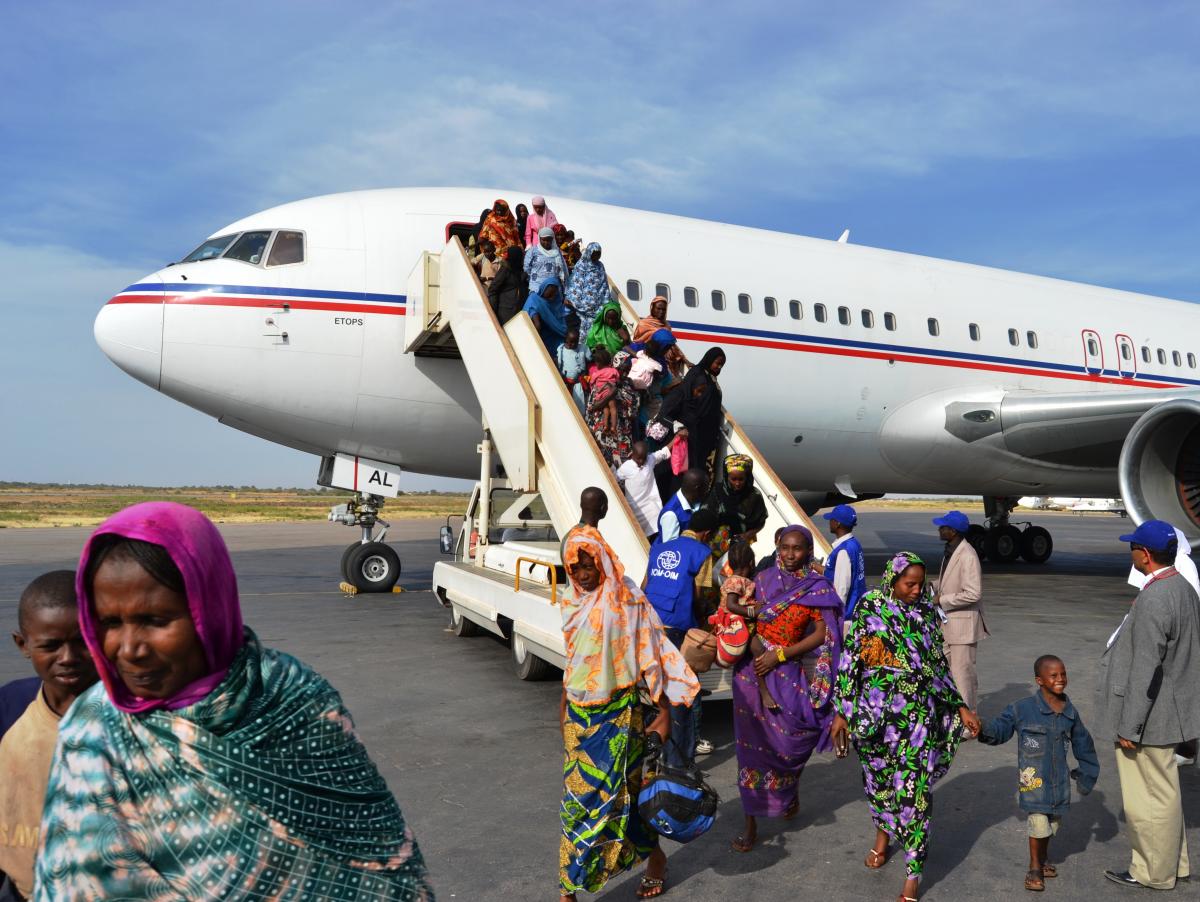
An IOM charter flight arrives in N'Djamena with Chadians evacuated from Bangui, CAR. The framing of the conflict as a religious one downplays the role of political power struggles. © IOM 2014 (Photo by Craig Murphy)
By Naomi Mihara
Modern day conflicts, such as the violence that is currently raging in Central African Republic and South Sudan, are often simplistically viewed as being rooted in ethnic and cultural differences. The reality is far more complex. Political power struggles such as those playing out in Ukraine and Thailand, unequal allocation of resources and poor provision of public services all play a role in the development of intra-national conflicts.
Outside observers - notably the international media - have framed the conflict in CAR and South Sudan along religious and ethnic lines, which only serves to exacerbate the idea that cultural differences will always result in tensions and hostilities. Similarly, the standoff in Thailand and Ukraine’s revolution are portrayed as ‘Red vs Yellow’ and ‘East vs West’.
In the worst case scenario that kind of analysis may even increase the violence between the two sides, and be exploited by certain individuals in an attempt to gain political power. It is easy to slip into an 'us vs them' narrative when people are suffering in their daily lives and are looking for scapegoats. In reality, creating stable societies is about building strong governments and institutions which provide for the needs of the people regardless of their background.
Divisions along cultural lines often adversely affect migrants, who are an easy target for blame during tough economic times. In Europe, scaremongering about the lifting of working restrictions for Bulgarians and Romanians has resulted in a backlash against Eastern European migrants.
This has been particularly aggressive in my home country, the UK, thanks in large part to the sensationalist tabloid media. The press has long stigmatised the Roma, and by association all Bulgarians and Romanians, as welfare-sponging criminals. This may serve to deflect attention from wider economic issues by implying that eastern European migrants are more likely to take from than contribute to the economy of their chosen destination, despite a recent European Commission study showing the opposite to be true.
Now legally entitled to employment, Bulgarian and Romanian migrants are better protected from exploitation and are also less likely to avoid paying taxes. Unfortunately the political reaction has been to bow to overblown fears, rather than set the facts straight and support new migrants so they can better integrate and contribute economically and culturally.
As long as cultural differences are exploited by those in power for their own benefit, divisions and tensions within societies are only going to get worse. Governments need to resist the easy way out - falling into populist policies and rhetoric. Instead of trying to paper over other societal problems by fuelling an already strong anti-migrant sentiment, migrants need to be helped to live in dignity alongside host populations, so they are no longer seen as second class citizens.
Governments also need to deal with fundamental inequalities affecting many countries today and bring in policies that, rather than penalizing migrants, will create better working and living conditions for all and stronger, more integrated communities. This will ultimately help to remove the perceived threat that migrant workers represent and contribute to the shift in public perception that needs to happen.
Naomi Mihara is Regional Communications and Media Intern at IOM’s Regional Office for Asia and the Pacific